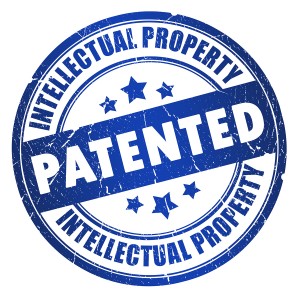Apple Inc. (NASDAQ:AAPL) and Samsung are squaring off in court again over the South Korean company’s rather blatant copycatting of Apple designs and technologies. Samsung gave the legal proceedings an interesting twist by admitting that they violated Apple’s patents thoroughly and completely, but that the patents are not worth very much. Samsung states that it does indeed owe Apple money, but only $7 million in royalty fees, not $2 billion in damages.
Examining these figures more closely, the Korean firm sold 314 million smartphones in 2013. Apple (AAPL) is seeking $40 compensation per telephone in violation of its patents, or a total of $2 billion. This means the Cupertino firm is claiming that about 50 million of Samsung’s phones were copycatted from Apple patents, or approximately 16%. By contrast, if Samsung’s $7 million in damages is accepted by the court, this works out to just 14 cents per smartphone in violation. This amounts to no more than a royalty payment, and not a very large one at that.
 The outcome of the litigation is difficult to predict, since one party is asking for absurdly high damages, and the other is asking for absurdly low. Samsung appears to have scored some points with the Internet mavens, who see at least some merit in its claims. However, convincing the judge or judges who handle the suit will be a very different proposition. It should also be noted that there is a whiff of hypocrisy in Samsung’s claims, given that it wanted $3 billion in damages from Apple Inc. (AAPL) for the latter company’s alleged infringement of a patent on a baseband chip used in Samsung phones.
The outcome of the litigation is difficult to predict, since one party is asking for absurdly high damages, and the other is asking for absurdly low. Samsung appears to have scored some points with the Internet mavens, who see at least some merit in its claims. However, convincing the judge or judges who handle the suit will be a very different proposition. It should also be noted that there is a whiff of hypocrisy in Samsung’s claims, given that it wanted $3 billion in damages from Apple Inc. (AAPL) for the latter company’s alleged infringement of a patent on a baseband chip used in Samsung phones.
If Samsung wins the case, perhaps due to Apple (AAPL) asking for unreasonably large damages and thus alienating a court which would otherwise have ruled in its favor, the litigation could prove to be a “game changer.” If Apple wins, the outcome will reaffirm that a patent is an absolute ban on the copying and sale of a company’s or individual’s distinctive product. This is the “default” result, and would maintain the theoretical inviolability of patents, at least.
However, if Samsung is victorious, a precedent with profound implications will be set. The definition of a patent will, by implication, have been changed. Rather than being hermetic and exclusive, a patent will become the right to extract a reasonable royalty from copycats, but not to prevent copying or sale of intellectual property. Though a transition period is likely during which the old and new patent definitions overlap, this may be a watershed moment in the development of patent law, when the monopolistic version of patents begins to give away to a “right to royalties” interpretation.
In light of the dynamics of the technology market, with the frequent cross-fertilization of ideas and parallel developments intersecting with vague, extremely broad patents, perhaps a redefinition of patents as a “right to royalties” rather than an exclusive production right would actually be beneficial.
At this point, major tech firms can steal from each other anyway, absorb the consequences, and keep going. At the same time, a twisted ecosystem of patent trolls has sprung up to exploit the current system’s weaknesses, burying legitimate claims by small inventors in a flood of frivolous lawsuits. The concept of the patent is already badly wounded; perhaps it is time to finish it off and create a new definition based on compromise and royalty payments.



